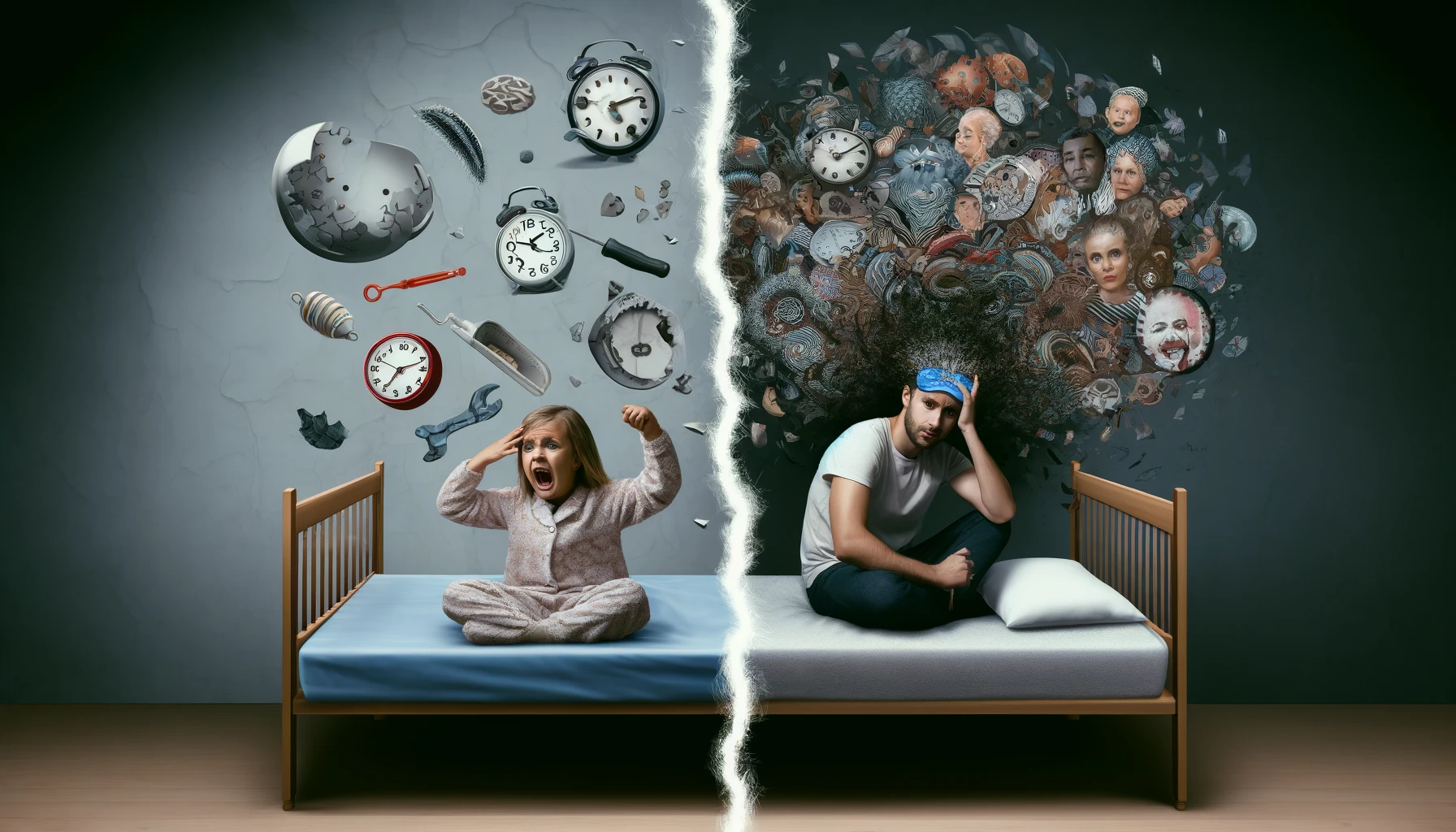— William Shakespeare, Henry IV, Part 2
We have some important news that highlights just how crucial sleep is for your long-term mental health. Recent research has revealed that kids who consistently get too little sleep are at a much higher risk of developing psychotic disorders when they grow up.
The Study in a Nutshell:
Researchers from the University of Birmingham conducted a study as part of the Avon Longitudinal Study of Parents and Children. They followed the sleep patterns of 12,394 kids from infancy (6 months old) to around 7 years old. They found that children who had persistently short sleep durations were 2.5 times more likely to develop psychotic disorders by the time they reached 24 years old.
Why Does This Happen?
The researchers discovered that inflammation might be a key factor. They measured certain inflammatory markers in the participants when they were 9 and 15 years old. Higher levels of one marker, called interleukin 6 (IL-6), were linked to the increased risk of psychosis.
What Can We Do About It?
Dr. Isabel Morales-Muñoz, one of the study’s lead investigators, emphasizes the importance of addressing sleep problems early on. She points out that while it’s normal for kids to have occasional sleep issues, chronic sleep problems need attention. By ensuring children get enough sleep, we might help reduce the risk of serious mental health issues later in life.
Why This Matters for You:
If you’re between 16 and 29, you might still be experiencing the effects of your sleep habits from when you were younger. It’s never too late to improve your sleep. Good sleep habits can have a lasting impact on your mental health.
Here are a few tips to help you get better sleep:
Stick to a routine: Try to go to bed and wake up at the same times every day.
Create a restful environment: Keep your bedroom cool, quiet, and dark.
Limit screen time before bed: The blue light from screens can interfere with your sleep.
Stay active: Regular exercise can help you fall asleep more easily at night.
Remember, your sleep is important for your overall health, now and in the future. If you’re having persistent sleep issues, don’t hesitate to seek help. It could make a big difference in your mental health down the road.
Sweet dreams!




